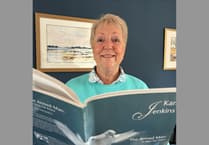NEW research from Will Aid reveals that 55% of adults in the South West could be leaving their loved ones unprotected because they do not realise that, in England and Wales, getting remarried automatically revokes any existing Will.
A recent survey by the annual charity Will-writing campaign found 55% of respondents in the South West were unaware of this rule.
Without making a new Will after marriage, their estate could instead be distributed under the Rules of Intestacy – which may not reflect their wishes.
The poll surveyed more than 2,000 people across the UK and showed a similar picture nationally, with 56% of all respondents unaware their estate may end up being shared as set out by law instead of according to what they wanted.
The law, which dates back to the Wills Act 1837, is currently under review by the Law Commission.
In May, the Commission published a draft bill proposing reforms that would prevent an existing Will from being automatically revoked on marriage.
These changes are designed to protect vulnerable or elderly people from so-called “predatory marriages”, where an individual marries with the intention of inheriting.
But until any legal reforms are enacted, Will Aid is warning that anyone who marries or remarries in England and Wales must make a new Will if they want their estate to pass according to their wishes.
Chris Adiole, Director at Penerley Solicitors, said: "I often come across people who assume their existing Will continues to stand after they get married, and they’re genuinely surprised to learn that the law cancels it automatically. That can cause real problems for families, leaving everything up in the air at the worst possible time.
“It’s always worth reviewing your Will after big life changes like marriage, divorce or having children. It gives you peace of mind and makes sure your wishes are carried out properly.”
Peter de Vena Franks, Campaign Director for Will Aid, said: "It is shocking that so many people are unaware that marriage or remarriage cancels an existing Will. This could mean children from a previous relationship are unintentionally disinherited, or that estates are distributed in a way the deceased never intended.
“Making a Will is the only way to make sure your wishes are respected. And if you are getting married, you should make a new Will either in contemplation of that marriage or as soon as possible afterwards.”
Will Aid is encouraging people to use its upcoming campaign month in November to write or update their Wills with a participating solicitor, while also supporting UK charities including Age UK, British Red Cross, Christian Aid, NSPCC, SCIAF (Scotland), Trócaire (Northern Ireland) and – new for this year, Shelter and Crisis.
Will Aid is a nationwide campaign that takes place every November and sees participating solicitors across the UK volunteer their time to write basic Wills, waiving their usual fee in exchange for a voluntary donation.
Suggested donations are £120 for a single Will and £200 for a pair of mirror Wills – with all donations supporting the vital work of eight leading UK charities.
Appointments are available now and can be made with a participating firm either in person or remotely.
For more information, visit: www.willaid.org.uk



.jpeg?width=209&height=140&crop=209:145,smart&quality=75)

Comments
This article has no comments yet. Be the first to leave a comment.